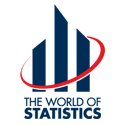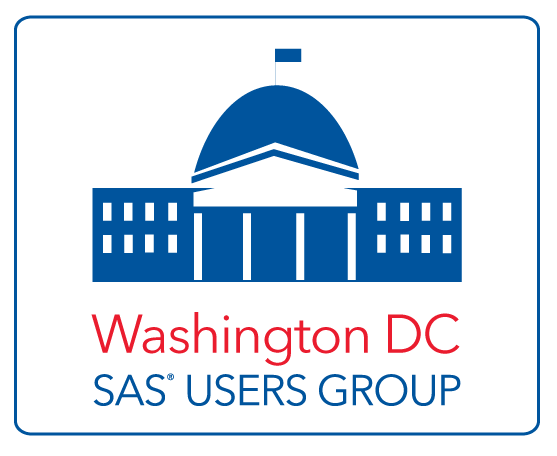February 2006
Contents:
- Herriot Award Nominations Sought
- The Jeanne E. Griffith Mentoring Award
- WSS Audit
- Education Announcements:
- SIGSTAT Topics for February to May 2006
- Short Courses (includes JPSM courses)
- Seminars
- Employment Opportunities
- Email Delivery
- Note From The WSS NEWS Editor
- WSS People
- PDF Versions:
(Requires Adobe Acrobat Reader)
Newsletter
Area Meetings and Courses
Herriot Award Nominations Sought
Nominations are sought for the 2006 Roger Herriot Award for Innovation in Federal Statistics.Ê The award is intended to reflect the special characteristics that marked Roger Herriot's career:
- Dedication to the issues of measurement;
- Improvements in the efficiency of data collection programs; and
- Improvements and use of statistical data for policyanalysis.
The award is not limited to senior members of an organization, nor is it to be considered as a culmination of a long period of service. Individuals at all levels within Federal agencies, other government organizations, nonprofits, the private sector, and the academic community may be nominated on the basis of their contributions.
The recipient of the 2006 Roger Herriot Award will be chosen by a committee comprising representatives of the Social Statistics Section and Government Statistics Section of the American Statistical Association and the Washington Statistical Society. Roger Herriot was associated with and strongly supportive of these organizations during his career.
The award consists of an honorarium and a framed citation.
JosephWaksberg (Westat), Monroe Sirken (National Center for Health Statistics), Constance Citro (National Academy of Sciences), Roderick Harrison (U.S. Census Bureau), Clyde Tucker (Bureau of Labor Statistics), Thomas Jabine (SSA, EIA, CNSTAT), Donald Dillman (Washington State University), Jeanne Griffith (OMB, NCES, NSF), Daniel Weinberg (U. S. Census Bureau), David Banks (FDA, BTS, NIST), Paula Schneider (U.S. Census Bureau), and Robert E. Fay III (U.S. Census Bureau) are previous recipients of the Roger Herriot Award.
For moreinformation, contact Lawrence Cox, Chair, Roger Herriot Award Committee, 301 458-4631 or LCox@CDC.Gov.
There are no fixed requirements for the contents or format of nomination packages, but completed packages must be received by May 1, 2006.
Electronic submissions to Dr. Cox in MS-Word or PDF format are encouraged.
Alternately, nominations may be mailed to:
Lawrence H. Cox
National Center for Health Statistics
3311 Toledo Road, Room 3211
Hyattsville, MD 20782
The Jeanne E. Griffith Mentoring Award
On receiving the Roger Herriot Award in June 2001, Jeanne E. Griffith said:
One of the most rewarding aspects (of Federal statistics) for me was the opportunity to promote creative activities and energies among my staff When I have had the blessing tomentor young people in their careers, I have tried to emphasize (that) only they, themselves, can make the most of the chances that life presents.
Dr. Griffith died in August 2001 after working for more than 25 years in the Federal statistical system. Throughout her career,and especially in her latter senior management positions at the National Center for Education Statistics and the NationalScience Foundation, one of Jeanne's highest priorities was tomentor and encourage younger staff at all levels to learn, togrow, and to recognize and seize career opportunities as they came along.
The Jeanne E. Griffith Mentoring Award has been established toencourage mentoring of younger staff in the Federal statistical system. It is presented annually, beginning in 2003, to a supervisor who is nominated by co-workers and supervisors, and chosen by the Award Selection Committee.
The award is co-sponsored by the Interagency Council on Statistical Policy, the Council for Excellence in Government,the Washington Statistical Society, the Social Statistics and Government Statistics Sections of the American Statistical Association, and the Council of Professional Associations on Federal Statistics.
Nominations for 2006 will be accepted beginning in February 2006. The last date for submission of nominations is March 31, 2006, and the Award Committee will make its determination of theaward winner by May 1, 2006. The award will consist of a $1000 honorarium and a citation, which will be presented at a ceremony arranged by the co-sponsors in June 2006.
The winning mentor will be selected for his or her efforts insupporting the work and developing the careers of younger staff.Examples of typical mentoring activities include:
- Advising junior staff to help them create career opportunities, networking skills, and contacts for growth and development;
- Counseling junior staff and providing resources to help develop their technical writing, analysis, presentation and organizational skills and knowledge;
- Encouraging junior staff growth and career development through attendance and oral presentations at meetings with higher level officials, staffs of other agencies, professional associations, training courses, and conferences;
- Motivating junior staff and building self confidence through feedback on their efforts, being a listener when that is needed, and creating a caring and supportive environment;
- Serving as a role model for junior staff through professional expertise, information and insights, balancing collegial and personal roles, and including everyone across rank, race, ethnicity, and seniority.
For further information on the award, contact Ed Spar, Council of Professional Associations on Federal Statistics (COPAFS) by phone: 703-836-0404; fax: 703-684-3410; or by e-mail at copafs@aol.com. The nomination cover sheet and guidelines form-or a photocopy of it-should be attached to a nomination memorandum or letter. Forms can be obtained by contacting Ed Spar, or by downloading from the COPAFS website at http://www.copafs.org. All nominations should be returned to the Jeanne E. Griffith Mentoring Award Committee, c/o COPAFS, 1429 Duke Street, Alexandria, VA 22314 no later than March 31, 2006.
Return to topWSS Audit
The audit of the WSS financial and income tax statements for tax year 2004 (tax year 2004 for a tax-exempt organization runs from July 1, 2004 to June 30, 2005) has been completed.Ê The statements were found to be in order.Ê The auditor thanks Treasurer John M. Finamore for his excellent cooperation.
The June 30, 2005 balance in the business economy checking account was $16,881.34.Ê Totaltax year 2004 WSS revenues were $39,861.
Michael P. Cohen, WSS Auditor
Return to topSIGSTAT Topics for February to May 2006
February 8, 2006: SAS PROC ENTROPY
The ENTROPY procedure implements a parametric method of linear estimation based on Generalized Maximum entropy. The ENTROPY procedure is suitable when there are outliers in the data and robustness is required, or when the model is ill-posed or undetermined for the observed data, or for regressions involving small data sets. Charlie Hallahan will be the speaker.
March 8, 2006: SAS PROC GLIMMIX
The GLIMMIX procedure fits statistical models to data with correlations or nonconstant variability and where the response is not necessarily normally distributed. These models are known as generalized linear mixed models (GLMM). The GLMMs, like linear mixed models, assume normal (Gaussian) random effects. Conditional on these random effects, data can have any distribution in the exponential family. In the absence of random effects, the GLIMMIX procedure fits generalized linear models (fit by the GENMOD procedure). Charlie Hallahan will be the speaker.
April 19, 2006: Introduction to SAS Enterprise Guide 4.1 for Statistical Analysis
The demo begins with a quick tour through the layout of Enterprise Guide (EG) as a menu-based interface to SAS procedures.Ê Emphasis in this workshop will be on the statistical capabilities of EG.Ê In particular, a set of data (put together using enhanced features of the query builder task) will serve as a case study for a forecasting exercise. The demo will show how code generated by EG can be customized, stored, and rerun, and custom reports saved with new Report Controls Integration.
Linda Atkinson and Charlie Hallahan will be the speakers.
May 17, 2006: Univariate Detrending Using SAS: Some Examples and Applications
Detrending or filtering is an important tool for the macroeconomist studying business cycle fluctuations. Business cycles can be thought of as deviations of output from its trend. As such, detrending or filtering allows us to focus on the 'cyclical' properties of output. Four methods of detrending using SAS will presented: Beveridge-Nelson decomposition, Hodrick-Prescott filter, Baxter-King filter, and Unobserved Components. Two applications of univariate detrending are also presented. The first is to use SAS to generate 'stylized facts' of the business cycle and the second is to examine the consequences of detrending on the effects of monetary policy on output.
Ban Cheah, Westat, will be the speaker.
SIGSTAT is the Special Interest Group in Statistics for the CPCUG, the Capital PC User Group, and WINFORMS, the Washington Institute for Operations Research Service and Management Science.
All meetings are in Room S3031, 1800 M St, NW from 12:00 to 1:00 (note new time). Enter the South Tower & take the elevator to the 3rd floor to check in at the guard's desk.
First-time attendees should contact Charlie Hallahan, 202-694-5051, hallahan@ers.usda.gov and leave their name. Directions to the building and many links of statistical interest can be found at the SIGSTAT website, www.cpcug.org/user/sigstat/
Return to topEmail Delivery
If you did not receive this issue electronically and you have not notified us that you wish to receive the newsletter in hardcopy, please send your preferred email address to svm@mitre.org and indicate that this is your address for the WSS newsletter. To continue to receive the newsletter in hard copy, contact the WSS secretary at courtney.nreiser@census.gov or (301) 763-4142.
Return to topNote From The WSS NEWS Editor
Items for publication in the April issue of the WSS NEWS should be submitted no later than February 28, 2006. E-mail items to Michael Feil at michael.feil@usda.gov.
Return to topClick here to see the WSS Board Listing (pdf)
Return to top






